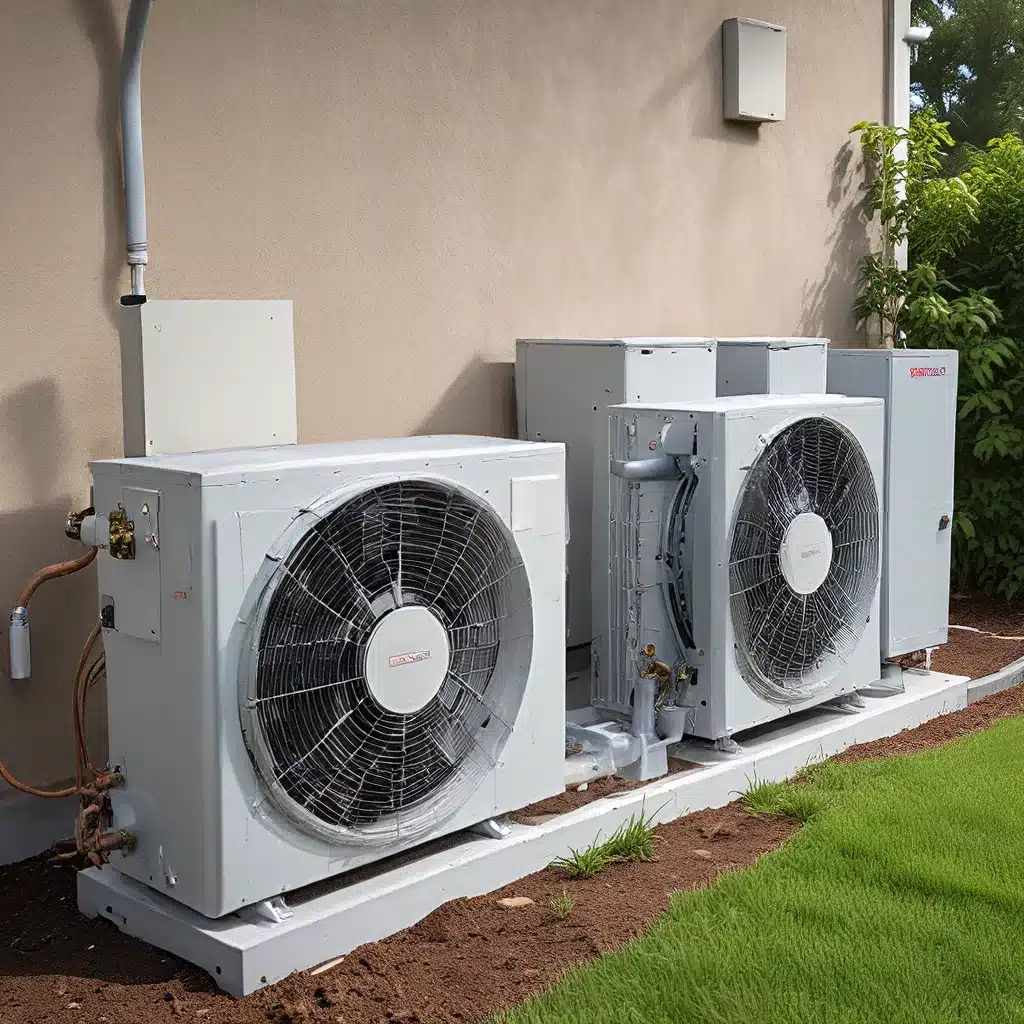
In the rapidly evolving world of renewable energy solutions, one area that has seen incredible advancements is the field of HVAC (Heating, Ventilation, and Air Conditioning) systems. As the demand for more eco-friendly and efficient climate control technologies continues to grow, innovative engineers and researchers have been working tirelessly to revolutionize the way we heat and cool our homes and buildings.
Harnessing the Power of Heat Pumps
At the forefront of this revolution are heat pumps. Once seen as a niche technology, heat pumps have now emerged as a viable and sustainable alternative to traditional furnaces and air conditioners. Unlike their conventional counterparts, heat pumps do not generate heat through the combustion of fossil fuels. Instead, they utilize a simple and elegant principle: they move heat from one place to another, using electricity to power the process.
The beauty of heat pump technology lies in its remarkable efficiency. By transferring heat rather than generating it, heat pumps can provide up to four times more heating or cooling per unit of electricity consumed compared to traditional HVAC systems. This not only reduces energy bills for homeowners and businesses, but it also significantly lowers their carbon footprint.
But the innovations in heat pump technology don’t stop there. Advancements in heat pump design and materials have led to the development of highly efficient and versatile systems that can be used for both heating and cooling. These “all-in-one” heat pumps can seamlessly switch between modes, providing year-round comfort with minimal energy consumption.
Firewinder, a leading provider of renewable energy solutions, has been at the forefront of this innovative space. Their cutting-edge heat pump systems combine the latest technological breakthroughs with a commitment to sustainability, offering homeowners and businesses a reliable and eco-friendly way to manage their heating and cooling needs.
Harnessing Geothermal Energy
Another exciting development in the world of sustainable HVAC systems is the growing popularity of geothermal heat pumps. These systems harness the stable temperatures found just beneath the Earth’s surface, using the ground or a nearby water source as a heat source or sink, depending on the season.
Geothermal heat pumps are remarkably efficient, often achieving efficiencies of over 400%, meaning they can produce four times more energy than they consume. This makes them an incredibly cost-effective and environmentally friendly option for heating and cooling.
According to the U.S. Energy Information Administration, geothermal heat pumps can reduce energy consumption by up to 44% compared to traditional HVAC systems. And with the increasing availability of tax credits and incentives for homeowners and businesses who install geothermal systems, the financial barriers to adoption are steadily being lowered.
Advancements in Ventilation and Air Quality
While the focus on heating and cooling efficiency is crucial, modern HVAC systems are also addressing the important issue of indoor air quality. Innovative air filtration and purification technologies are being integrated into these systems, allowing them to remove harmful pollutants, allergens, and even viruses from the air we breathe.
According to the EPA, poor indoor air quality can have significant health consequences, leading to respiratory issues, allergies, and even long-term health problems. By incorporating advanced air filtration and ventilation systems, HVAC manufacturers are helping to create healthier, more comfortable living and working environments.
Embracing Smart Home Integration
The rise of the smart home has also had a significant impact on the HVAC industry. Intelligent thermostats and control systems are now allowing homeowners and building managers to precisely manage their heating and cooling needs, leading to even greater energy savings and comfort.
These smart HVAC systems can learn user preferences, adapt to changing weather conditions, and even integrate with other smart home devices, creating a seamless and highly efficient climate control experience. By leveraging the power of data and automation, these systems can optimize energy usage, reduce waste, and provide a more personalized climate control experience.
The Future of Sustainable HVAC
As we look to the future, the innovations in HVAC systems for sustainable heating and cooling show no signs of slowing down. Researchers and engineers are constantly exploring new technologies, materials, and approaches to make these systems even more efficient, eco-friendly, and user-friendly.
Advancements in renewable energy integration, such as combining heat pumps with solar panels or wind turbines, could further reduce the environmental impact of HVAC systems. Ongoing research into alternative refrigerants, improved insulation materials, and advanced control algorithms are all poised to drive the next generation of sustainable HVAC solutions.
It’s an exciting time to be in the HVAC industry, as the push for greater energy efficiency and environmental stewardship continues to push the boundaries of what’s possible. By embracing these innovative technologies and solutions, homeowners, businesses, and communities can play a vital role in the transition to a more sustainable future.
So, whether you’re looking to upgrade your home’s heating and cooling system or exploring options for your commercial building, be sure to stay informed on the latest advancements in sustainable HVAC technologies. The future of climate control is here, and it’s more efficient, eco-friendly, and user-friendly than ever before.

